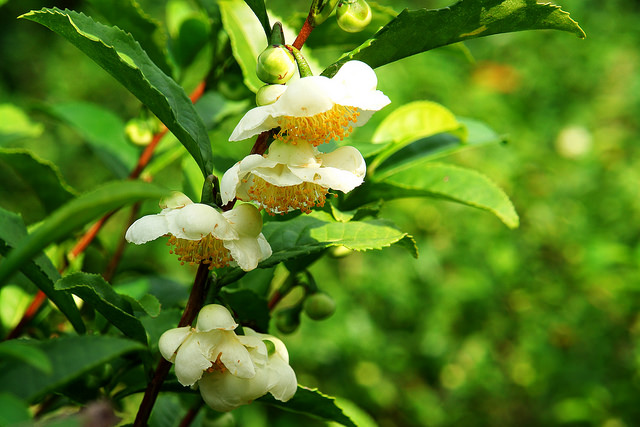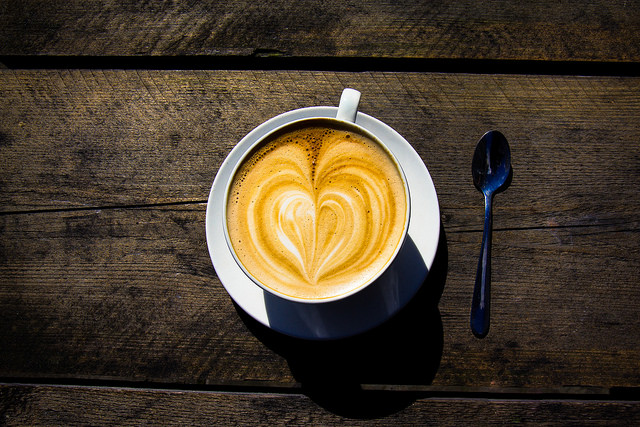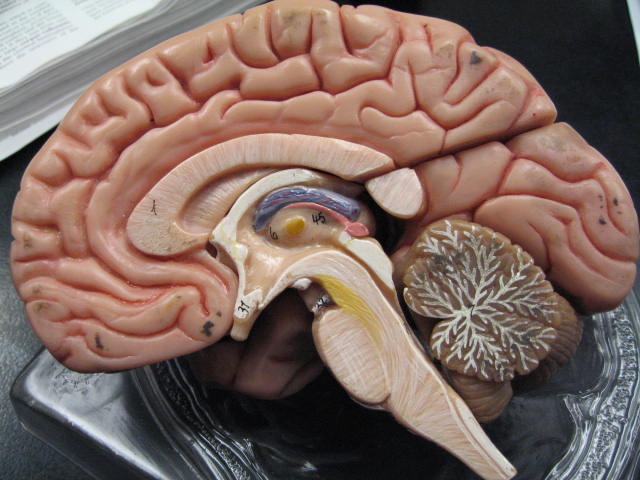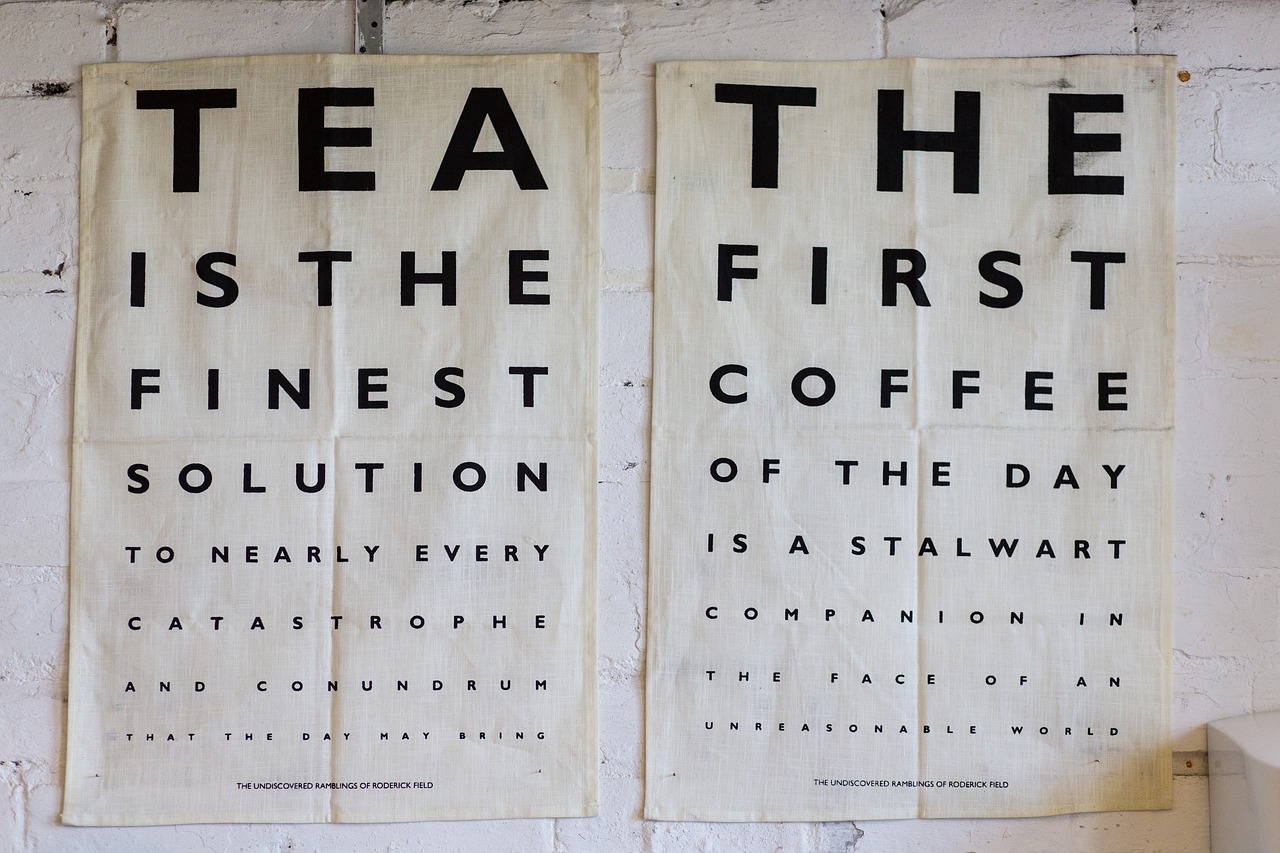Tea has been enjoyed across the world for centuries, starting in Asia and moving it’s way west. Coffee is newer to the scene. Originally an Arab drink, it became popular in Europe sometime around the 17th century. Everyone has their favorite, and many are quick to defend their choice, but which beverage really holds the upper hand from a health perspective?
In order to gain some insight, let’s break down a few key components of each drink.
Table of Contents
Caffeine Content
Coffee has more caffeine than tea hands down. At around 100 to 150 mg per 8 oz. cup, coffee can provide that well needed energy boost in the morning. Caffeine is one of the main reasons people drink coffee, because of it’s ability to lift mood and increase focus. It acts as a stimulant on the central nervous system, improving reaction times and increasing mental clarity. About 15 minutes after consumption, the caffeine in a drink makes its way into your blood. Caffeine is able to easily cross the blood brain barrier because its chemical structure closely resembles the neurotransmitter adenosine. This resemblance also has the consequence of allowing caffeine to bind to adenosine. Since one of the jobs of adenosine is to control human sleep-wake cycles, this binding prevents activation of adenosine receptors. With more of these unbound receptors sitting around, dopamine uptake increases. As you probably know, dopamine is a neurotransmitter in the brain that affects mood, motivation, and cognition. This is what causes the feel good sensation during a caffeine rush.
For tea, caffeine content varies wildly by tea type, brand and brewing method. Brewed black tea generally contains about 45 mg caffeine, followed by oolong tea (~40 mg), green tea (~30 mg), and white tea (~25 mg). You’ll still get an energy boost from tea, but it will be much more subtle. This can be perfect for people more sensitive to caffeine.
The caffeine in tea has a slightly different effect on the body than coffee because tea contains an amino acid compound called L-theanine. In animal models, L-theanine works by increasing seratonin, dopamine, and GABA levels in the brain. GABA is actually an inhibitory neurotransmitter that reduces activity of the excitatory neurotransmitter glutamate, the primary agent responsible for anxiety. This is why a large class of anti-anxiety drugs called benzodiazepines, which include drugs like Xanax, Adivan, and Valium, work by enhancing the effect of GABA. It’s pretty cool that tea does this as well, and may be the reason why sipping a cup of tea is associated with relaxation. There is still research to be done on the subject, but several studies have come out indicating that L-theanine can help mitigate many of the negative side effects associated with caffeine and create a combined effect that improves focus even further.

The camellia sinensis plant from which traditional tea leaves are harvested.
Another thing to keep in mind is that traditional tea comes from a plant called camellia sinensis. Herbal teas on the other hand are made from the roots and leaves of other plants that often do not contain caffeine.
If you maintain a healthy sleep schedule and don’t use coffee as a crutch to get you through the workday, stick with coffee. However if you find yourself jittery after a cup of joe, or have difficulty getting to sleep at night, you may want to consider decaf coffee or tea as an alternative. If you’re like myself and are looking for something on the lighter side, tea is the perfect alternative. Or, if you wish to avoid caffeine completely, take a look at herbal teas. A good rule of thumb is to avoid caffeine after noon for the best sleep. In healthy individuals, caffeine has a half-life of 5 to 6 hours. This means 6 hours after you drink caffeine only half of what you absorbed will remain present in your blood.
Anti-Cancer
There is evidence to suggest that both tea and coffee can reduce the risk of cancer and slow tumor growth. The key to the anti-cancer property of these drinks is believed to be their high antioxidant content, namely in the form of polyphenols. Compounds called free radicals are produced as a result of metabolic processes within our body and are absorbed from the environment through cigarette smoke, pollution, radiation and other chemicals. These free radicals have unpaired electrons and want to bind to anything that will pair with this electron. When a free radical binds to the tissues and DNA within a cell it impedes normal functionality and causes damage, sometimes in the form of cancer. Antioxidants on the other hand have electrons to spare and can easily bind to these free radicals, effectively neutralizing them.
Tea is loaded with antioxidants, especially in the form of flavanoids. Green teas contain high concentrations of catechins and black teas contain theaflavins and thearubigens, all of which are potent antioxidants, but green tea is believed to provide more healthy antioxidants than black tea. The highest polyphenol concentration is found in brewed hot tea. Powdered instant teas and iced teas don’t contain many antioxidants. Many studies have been done on the anti-cancer properties of tea, and there is evidence to suggest that tea consumption can reduce the risk of skin, breast, prostate, esophageal, lung, ovarian, and digestive system cancers.
Coffee is by far the largest source of antioxidants in the American diet because of its popularity. The most common antioxidants in coffee are phenolic acids and an assortment of other polyphenols. One meta analysis published recently by Nature Research found an inverse correlation between coffee consumption and various types of cancers. In coffee drinkers, the relative risk of colon cancer was reduced by 54% and prostate cancer risk was reduced by 27%. Interestingly, lung cancer risk was increased 118%, but this is likely due to a correlation between coffee drinkers smoking more cigarettes. Many of the studies showed that the risk of each kind of cancer decreased linearly with the cups of coffee consumed. More coffee = less cancer.
Coffee actually contains more antioxidants per cup than tea, but because tea is easy to sip all day long, tea drinkers may consume just as much or more than lighter coffee drinkers. As a side note, be careful not to consume either coffee or tea too hot as it can increase the risk of esophageal cancer.
Heart Health
In addition to polyphenols playing an important role in preventing cell damage and cancer, these compounds which are found so abundantly in tea and coffee may also help protect against cardiovascular diseases. Stroke and heart disease take the lead among causes of death worldwide, so anything we can do to boost our heart health is vital. Here are a few of the ways coffee and tea may help.
Several studies have indicated that routine consumption of tea can help lower the risk of stroke. This meta analysis of nearly 200k individuals concluded that 3 or more cups of tea daily reduced the overall risk of stroke by 21%. In another study, a high intake of flavanols, a compound found abundantly in tea, was associated with a 20% lower risk of stroke.
Tea, especially green tea, also has a pretty significant effect on cholesterol. As a possible explanation of this effect, one lab study found that the polyphenols in green tea inhibited the oxidation of low-density lipoproteins (LDL). This oxidation process is thought to contribute to the development of heart disease. Green tea intake has also been shown to significantly reduce both overall cholesterol and LDL cholesterol.

Coffee has also been shown to reduce the risk of stroke and heart disease. This study analysed more than 80,000 women over a 24 year period and found that a cup of coffee a day decreased the risk of stroke by 12%, and 2-3 cups a day was associated with a 19% decreased risk. Another study that looked at the relationship between coffee and tea consumption and their relationship with cardiovascular health found that those who consumed 2-3 cups of coffee a day had a 21% decreased risk for developing coronary heart disease.
One proposed mechanism for this association is that the caffeine in coffee causes your heart to beat faster, increasing circulation to your body. However, this also means coffee causes a short but dramatic rise in blood pressure that could trigger a heart attack or stroke in someone with existing heart conditions.
While coffee decreases the risk of heart disease in most individuals, there is a minority of people with a certain genetic mutation for whom drinking coffee is not only unhealthy, but can pose serious health risks. This CYP1A2 gene is responsible for encoding an enzyme that breaks down caffeine in the liver. Carriers of the mutation have a much harder time processing caffeine and if they consume too much coffee in a short period of time it can lead to a heart attack. There are services online that allow you to get tested for this mutation if you’re concerned you may be affected. One reliable option that close friends of mine have used is 23andme.
Brain Function

Besides the mental benefits acquired by consuming caffeine and l-theanine discussed above, coffee and tea can help prevent age related declines in mental function. Keeping an active mind is the key to staving off Alzheimer’s, and since coffee and tea both stimulate neural activity it makes sense that studies are coming out proving they can help improve brain health. In one study of elderly citizens, those who consumed 2 or more cups of green tea a day had a 54% lower rate of cognitive decline.
For coffee, there is significant evidence demonstrating that the caffeine in coffee reduces the risk of developing Parkinson’s disease and dementia later in life if consumed regularly. For example, take a look at this follow-up study, which surveyed 6710 elderly individuals over a 22-year period. Those who consumed 10 or more cups of coffee a day had an incredible 74% lower risk of developing Parkinson’s disease. Granted, that’s a lot of coffee to be drinking, but the relationship still holds up for those who drink less coffee.
Beyond helping reduce cognitive decline, recent research from Johns Hopkins university shows that caffeine could also help in the consolidation of long term memory. In their study, individuals were asked to recognize and evaluate images they had been shown 24 hours before. One group was given 200 mg of caffeine before being shown the images while another was given a placebo. The group given the caffeine pill were better able to recognize and remember images shown to them the day before. It’s amazing to me that caffeine can help not just with focus, but also in the formation of memories.
It’s also known that inflammation plays a large role in diseases such as Alzheimer’s and Parkinson’s, and both coffee and tea are a rich source of inflammation reducing antioxidants.With tea, there is some evidence to suggest that the polyphenols in tea help prevent these diseases by reducing oxidative stress on the brain. The polyphenols and other antioxidants in tea have been demonstrated to reduce the denaturation of protein caused by inflammation in vitro in a dose dependent manner. Green tea catechins also help by controlling the overproduction of pro-inflammatory cytokines, decreasing lipid peroxidation, and lowering overall oxidative stress.
Weight Loss
Tea, especially green teas and green tea extracts, seem to have an effect on fat oxidation and metabolism due to both their high catechin content and moderate caffeine content. The catechins & caffeine work on a cellular level by inhibiting catechol O-methyl-transferase as well as phosphodiesterase. These catechins also have an antiangiogenic effect, which means they inhibit the formation of new blood vessels. This may play an important role in preventing the accumulation of new fatty tissues.
In one crossover study, healthy men were given a rather large dose of green tea extract. 24 hours after supplementation, fat oxidation had increased by an incredible 17% compared to placebo. Several other studies have shown fat loss and waist size reduction with green tea consumption, such as this one in which obese individuals were given green tea alongside a normal diet. After 12 weeks, the individuals consuming green tea had lost 3.3 kg more weight than the control subjects.
While coffee lacks the catechin content present in green tea, it makes up for it with it’s greater caffeine content. As discussed above, caffeine has an inhibitory effect on phosphodiesterase, but it also works through several other mechanisms, including the intracellular mobilization of calcium, and increased sensitivity of myofibrils to calcium. Caffeine taken before a workout can also help the body recover better post workout by increasing production of catecholamines which in turn increases the availability of free fatty acids during a workout. Several meta-analyses such as this one have also demonstrated that caffeine reduces perceived exertion during endurance exercises by more than 5%, and increases overall physical performance by 11%.
In addition to increasing fat oxidation and improving physical performance, caffeine also has an appetite suppressing effect. For example, this study demonstrated that obese individuals who took 6 mg of caffeine per kg of body weight with their breakfast consumed significantly fewer calories during the day as compared with controls who drank water.
Concluding Thoughts
More research is coming out every day pointing to the many health benefits of drinking both tea and coffee. For most people, neither one is a bad choice when it comes to health. However, keep in mind that adding too many sweeteners and creams to your drink can completely negate any long term benefits derived from drinking either coffee or tea. Don’t fool yourself into thinking that a frappuccino from Starbucks or a sweet tea loaded with sugar is good for you.
Going into this article, I expected tea to be the clear winner, but on a cup-by-cup basis, black coffee is probably a bit healthier than most teas. Where tea draws its advantage is in its relatively low caffeine content, which allows it to be sipped all day. Also, green tea contains the powerful EGCG antioxidant, which isn’t really present in any other foods. I personally drink several cups of green tea every day. Coffee has a bit too much caffeine in it for me, and I love the L-theanine that tea provides.




